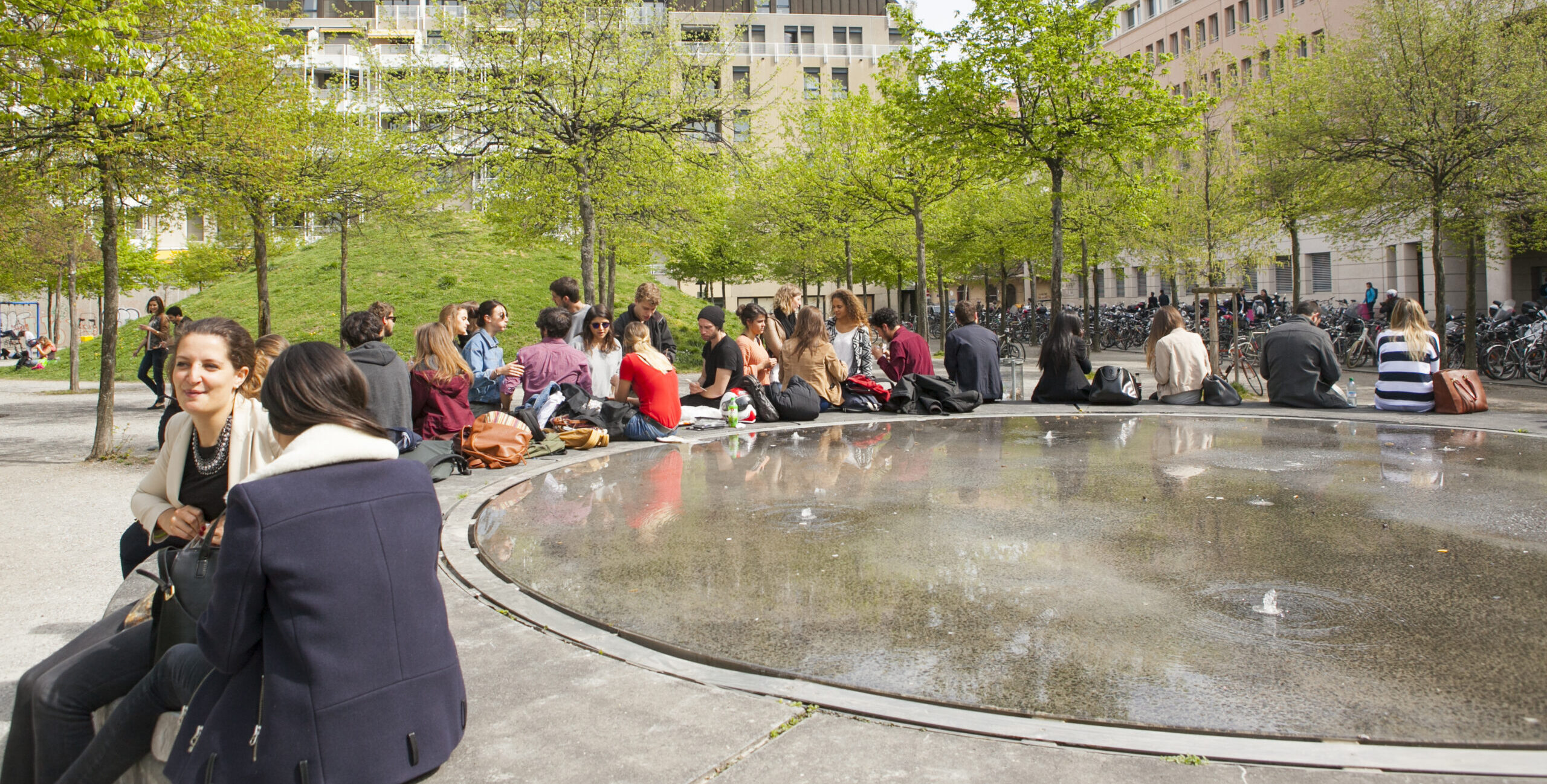
The perks of a national exchange
When it comes to academic exchanges, possibilities of destinations seem endless and for every taste, some more exotic than others. Opting for a national exchange, however, may be a less obvious choice. Breaking stereotypes and putting down apprehensions, some UNIGE and UZH students who took part in an exchange programme between the two universities have shared their experience, revealing the perks of a Swiss adventure.
Whether to discover more about Switzerland, to learn a national language or to embrace the vast diversity of their study field, the reasons behind the students’ choice to do a student exchange between the two cities vary. However, their testimonials all have this in common: going on an exchange in Switzerland offers its own unique opportunities and is thus worth just as any other.
Changing scenery while still staying at home
Doing an exchange is often synonymous with a change of air, discovering new places and different cultures. While going abroad is often seen as the only option, staying in Switzerland can also offer a cultural escape. Having tried the experience, Charlotte, a law student, is convinced, “we can change scenery even by staying in Switzerland.” Several students from the French-speaking and German-speaking parts of Switzerland agree that the mindset as well as diverse cultural aspects are different on the other side of the language divide.
“These same things that are so different.”
Estelle
And still, in some corners, students find familiar institutions and landmarks; “these same things that are so different,” comments Estelle. It is this duality that attracts Vanina in a national exchange. While living in a different atmosphere, she appreciated being in the same country and being able to go home easily. As Kim notes, the three hours train ride from Geneva to Zurich only felt like 30 minutes.
A comprehensive view of the disciplines
Switzerland has the particularity of holding an astonishing diversity within a very small area. Accordingly, students highlight the importance of apprehending their discipline from another part of the country. For instance, Grégoire points out that in law, 70% of the legal content and practice is in German, 30% is in French, but the material forms a comprehensive whole. Recalling one of his professor’s words, he uses the following meaningful metaphor: “If you go to the doctor and he tells you ‘I only know 30% of the material, the rest is not in my language’ or another doctor who says, ‘I know the subject 100%’, who do you chose?” After all, it is almost a necessity for a practicing lawyer in Switzerland to master two national languages.
Based on the same observation, Estelle, student in educational science in Geneva, “wanted to know better how it was elsewhere” in Switzerland. Kim and Elsa, both law students at the University of Zurich, have benefited from the different expertise of the two largest comprehensive universities in Switzerland. Indeed, they had the opportunity to follow international law classes at the University of Geneva, learning from renowned experts.
A national language catalyst
“It was a key experience that I recommend to every ‘French-anxious’ person!”
Kim
Almost all interviewed students agree on the added value of a Swiss exchange in terms of language. While knowing every additional language is an asset, mastering an additional national one proves to be an added value to work in Switzerland. Indeed, Estelle and Grégoire agree, it is a particular strength to put forward on their CV. Still, be it French or German, the two languages can be tough to tackle. As a French-speaker, Charlotte is optimistic: “Don’t be afraid and go for it!”, according to this law student, the best way to improve is to practice. After a few intense weeks of natural acclimation, “it was a key experience that I recommend to every ‘French-anxious’ person!” agrees Kim.
To assure a smooth transition, both universities offer different options to practice the language. The Law Department of the University of Zurich, for instance, offers a Buddy Program, and there are different tandem opportunities. In Geneva, “as an exchange student, you can take language courses free of charge, which I think is a thoughtful offer that I can recommend”, affirms Kaja.
“There is less paperwork than for going abroad, by the way”
Elsa
Going on an exchange in Switzerland is not only beneficial for reinforcing studies and learning about Switzerland in its variety, but more so, “there is less paperwork than for going abroad, by the way”, claims Elsa. This administrative ease allows to devote time for other important tasks, such as finding housing or simply concentrating with more ease on the studies.
Doing a student exchange within Switzerland means all the perks of travel, discovery, change of scenery, new professors and classes, new friends, and better language skills, minus the hassle of much paperwork, visa or insurance issues.
Credit for the picture in the header: Jacques Erard, Université de Genève